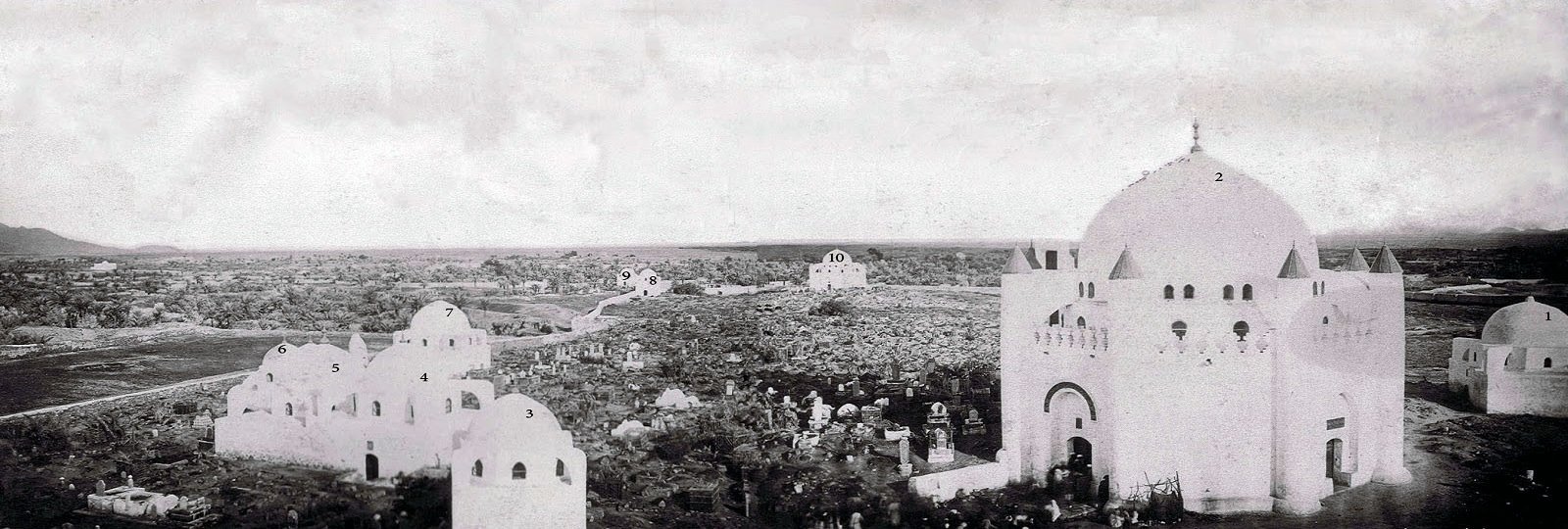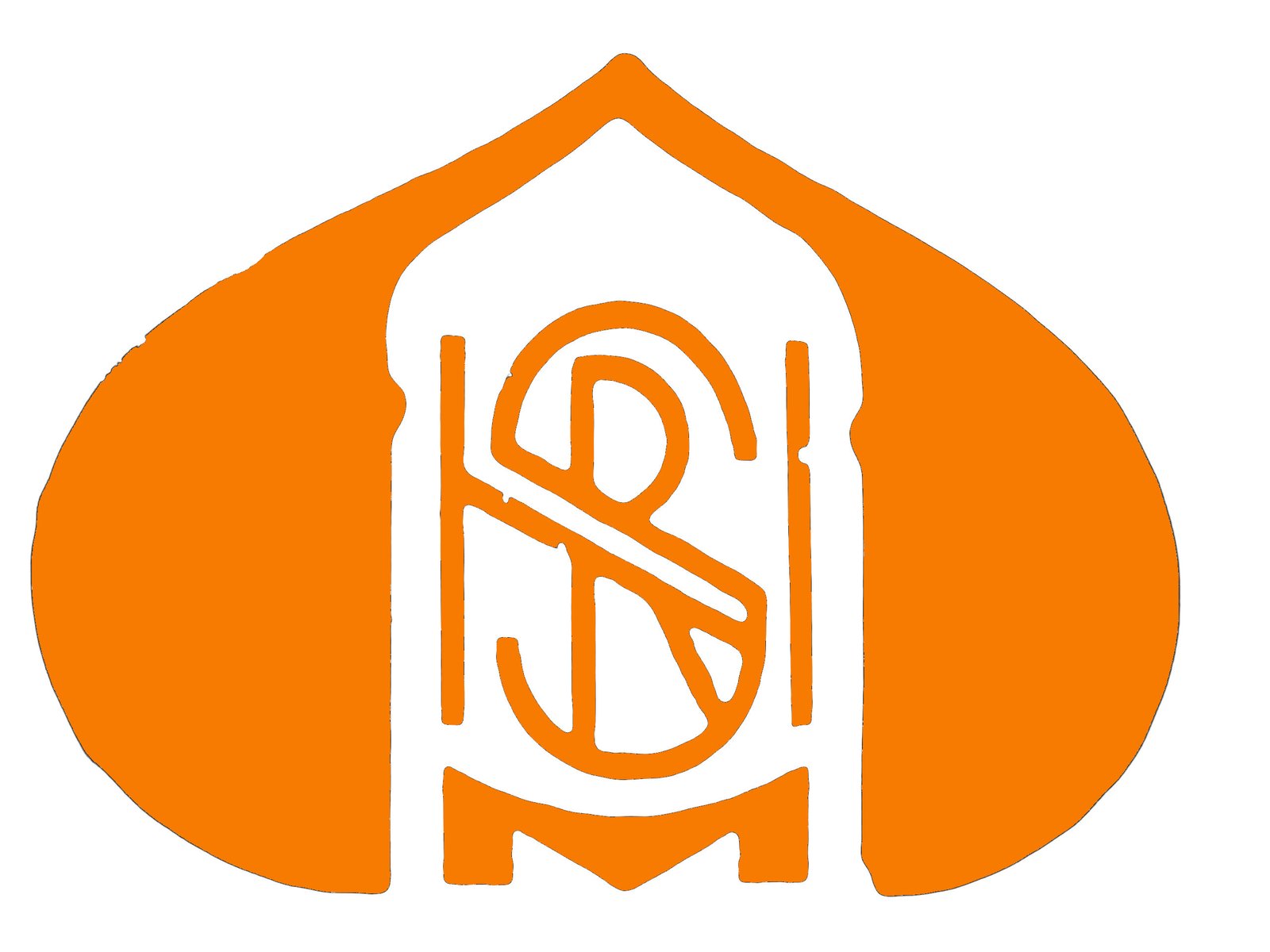Sayyidah Fatimah az-Zahra (r.a)

Sayyidah Fatimah az-Zahra (r.a) was the fourth daughter of the Holy Prophet SallAllahu Alaihi wa Sallam and Sayyidah Khadija (r.a). "Zahra" (having gleaming and luminous face), "Batool" (aloof from the worldly pleasures) are "Tahira" (chaste and modest) are among her exalted titles. She was an unusually sensitive child of her age. When she was five, she heard that her father had become the Apostle of Allah SallAllahu Alaihi wa Sallam. Her mother Sayyidah Khadija explained to her what the responsibilities of a Prophet are. Sayyidah Fatimah (r.a) became more closely attached to her father and felt a deep and abiding love for him. She used to accompany him through the narrow streets of Makkatul Mukarrama, visiting the Ka’bah or attending the secret meetings of the early Muslims who had embraced Islam and pledged allegiance to her father.
Once, she accompanied her father to the Masjid al-Haraam. Sayyiduna Rasoolullah SallAllahu Alaihi wa Sallam began to pray in front of the Ka’bah. A group of Quraysh chiefs gathered around the Holy Prophet SallAllahu Alaihi wa Sallam. Uqbah bin Abi Mu’ayt brought the entrails of a slaughtered animal and threw it on the shoulders of the Beloved Habeeb SallAllahu Alaihi wa Sallam. Sayyidah Fatimah (r.a), a ten year old girl, went up to her father and removed the filth. Then, in a firm and angry voice she lashed out against Abu Jahl and his colleagues. They could not utter a single word.
After the demise of her mother, Sayyidah Khadija (r.a), she felt that she had to give even greater support to her father. She devoted herself to looking after his needs. She was so engrossed in her father’s service that people started calling her “Umm Abiha”, the mother of her father. The Holy Prophet SallAllahu Alaihi wa Sallam had a special love for Sayyidah Fatimah (r.a).
Sayyiduna Miswar bin Makhramah (r.a) reported that the Holy Prophet SallAllahu Alaihi wa Sallam said:
“My daughter is part of me. He who disturbs her in fact disturbs me and he who offends her offends me.” [Sahih al-Bukhari, Hadith 3767]
The Holy Prophet SallAllahu Alaihi wa Sallam also said:
“The best women in the entire world are four: The Virgin Mariyam (r.a) daughter of Imran and Aasiya (r.a) the wife of Pharaoh and Khadija (r.a) Mother of the Believers and Fatimah (r.a), daughter of Muhammad SallAllahu Alaihi wa Sallam.” [Mustadrak al-Hakim, Vol. 4, Page 262, Hadith 4745]
Sayyidah Fatimah (r.a) thus acquired a place of love and esteem in the Beloved Nabi’s SallAllahu Alaihi wa Sallam heart that was only occupied by his wife Sayyidah Khadija (r.a). She was given the title of “Zahra” which means “The Resplendent One”. That was because of her beaming face, which seemed to radiate light. She was also called “Batool” because of her purity and asceticism. She spent most of her time in the recitation of the Holy Quraan, performing Salaah and doing other acts of Ibadah.
Sayyidah Ayesha (r.a) said:
“I have not seen any one of Allah’s SubHanuhu wa Ta'ala creation resemble the Messenger of Allah SallAllahu Alaihi wa Sallam more in speech, conversation and manner of sitting than Fatimah (r.a). When the Holy Prophet SallAllahu Alaihi wa Sallam saw her approaching, he would welcome her, stand up and kiss her, take her by the hand and sit her down in the place where he was sitting.” [al-Adab al-Mufrad, Page 406, Hadith 421]
Sayyidah Fatimah (r.a) learnt from her father the manners and gentle speech. She was kind to the poor. She often gave her food to the needy preferring herself to remain hungry. She had no inclination towards the materialistic world. She had no craving for the ornaments of this world or the luxuries and comforts of life.
Sayyidah Fatimah (r.a) was married to Sayyiduna Ali (r.a) at the beginning of the second year after the Hijra. She was nineteen-year-old and Sayyiduna Ali (r.a) was about twenty-one. The Holy Prophet SallAllahu Alaihi wa Sallam himself performed the Nikah. On her marriage, Sayyiduna Rasoolullah SallAllahu Alaihi wa Sallam is said to have presented Sayyidah Fatimah (r.a) and Sayyiduna Ali (r.a) with a wooden bed intertwined with palm leaves, a velvet coverlet, a leather cushion filled with the leaves of a plant, a sheepskin, a pot, a water-skin and a quern (A primitive hand-operated mill for grinding grain) for grinding grain.
One day Sayyiduna Ali (r.a) asked her to go to her father and ask for a servant. Sayyidah Fatimah (r.a) came to the Holy Prophet SallAllahu Alaihi wa Sallam. The Holy Prophet SallAllahu Alaihi wa Sallam said:
“Shall I not tell you of something better than that which you asked of me? I am telling you the words, which Jibra’eel Alaihis Salam has told me. You should say Subhan-Allah (Glory be to Allah SubHanuhu wa Ta'ala) 33 times, Al-HamduLillah (Praise be to Allah SubHanuhu wa Ta'ala) 33 times and Allahu Akbar (Allah SubHanuhu wa Ta'ala is Great) 34 times.” [Sahih al-Bukhari, Hadith 5362]
This is called “Tasbeeh-e-Fatimah” and brings blessings upon the person who regularly recites it.
Before proceeding on to his Farewell Pilgrimage in Ramadaan, 10 A.H., the Holy Prophet SallAllahu Alaihi wa Sallam said to Sayyidah Fatimah (r.a):
“The Archangel Jibra’eel Alaihis Salam recited the Qur'an to me and I to him once every year, but this year he has recited it with me twice. I cannot but think that my time has come”. [Sahih al-Bukhari, Hadith 3426]
On his return from the Farewell Pilgrimage, the Holy Prophet SallAllahu Alaihi wa Sallam became seriously ill. He was confined to the apartment of his beloved wife Sayyidah Ayesha (r.a). When Sayyidah Fatimah (r.a) visited her ailing father, Sayyidah Ayesha (r.a) would leave father and the daughter together.
Sayyidah Ayesha (r.a) reported:
“We, the wives of Allah’s Apostle were with him (during his last illness) and none was absent therefrom that Fatimah (r.a), who walked after the style of Allah’s Messenger SallAllahu Alaihi wa Sallam, came there, and when he saw her he welcomed her saying: ‘You are welcome, my daughter’. He then made her sit on his right side or on his left side. Then he said something secretly to her and she swept bitterly and when he found her (plunged) in grief, he said to her something secretly for the second time and she laughed. I (Ayesha (r.a)) said to her: ‘Allah’s Messenger SallAllahu Alaihi wa Sallam has singled you amongst the women of the family for talking to you something secretly and you wept’. When Allah’s Messenger SallAllahu Alaihi wa Sallam recovered from illness, I said to her: ‘What did he say to you?’ Thereupon, she said: ‘I am not going to disclose the secret of Allah’s Messenger SallAllahu Alaihi wa Sallam. When the Holy Prophet SallAllahu Alaihi wa Sallam passed away, I said to her: ‘I adjure you by the right that I have upon you that you should narrate to me what Allah’s Messenger SallAllahu Alaihi wa Sallam said to you.’ She said: ‘Yes, now I can do that. When he (Prophet SallAllahu Alaihi wa Sallam) talked to me secretly for the first time he informed me that Jibra’il Alaihis Salam was in the habit of reciting the Qur'an along with him once every year, but this year it had been twice and so he perceived his death quite near, so fear Allah SubHanuhu wa Ta'ala and be patient (and he told me) that he would be a befitting forerunner for me and so I wept as you saw me. And when he saw me in grief he talked to me secretly for the second time and said: ‘Fatimah (r.a), are you not pleased that you should be at the head of the believing women or the head of this Ummah?’ I laughed and it was that laughter which you saw.” [Sahih Muslim, Hadith 6467]
Sayyidah Fatimah (r.a) is undoubtedly the Chief of the Ladies of Paradise and her two sons, Imam Hasan (r.a) and Imam Husain (r.a), are the chiefs of the Youths of Paradise. But it should be borne in mind that Sayyidah Fatimah (r.a) is the chief of the women of this Ummah and not of the whole world. The Chief of the Women of the whole world is Sayyidah Maryam (r.a), as it has been stated in the Holy Qur'an:
“And when the Angels said: O Mariyam, surely Allah SubHanuhu wa Ta'ala has chosen thee and purified thee and chosen thee above the women of the world.” [Surah Aal-e-Imran: 42]
In another narration, Sayyidah Ayesha (r.a) reported that when she asked Sayyidah Fatimah (r.a) the reasons of her crying and laughing when her father talked to her secretly, she said:
“He informed me secretly of his death and so I cried. He then informed me secretly that I would be the first amongst the members of his family to follow him, so I laughed.” [Sahih al-Bukhari, Hadith 3427 ; Sahih Muslim, Hadith 2450]
This Hadith shows the implicit faith that Sayyidah Fatimah (r.a) had in the words of her father. She believed that her father was given the Knowledge of Unseen. She was quite sure that the events would take the same turn as her father had informed her. This Hadith also shows that Sayyidah Fatimah (r.a) loved her father more dearly than her husband and children, and her meeting with him in the Hereafter was a source of great comfort and consolation for her.
- Blessed be that symbol of honor; Pious Batool, our Prophet’s daughter
- Blessed be the veils of graces; Which from sun and moon hid their faces
- Blessed be our Prophet’s beloved daughter; Pious, pure and women’s leader

